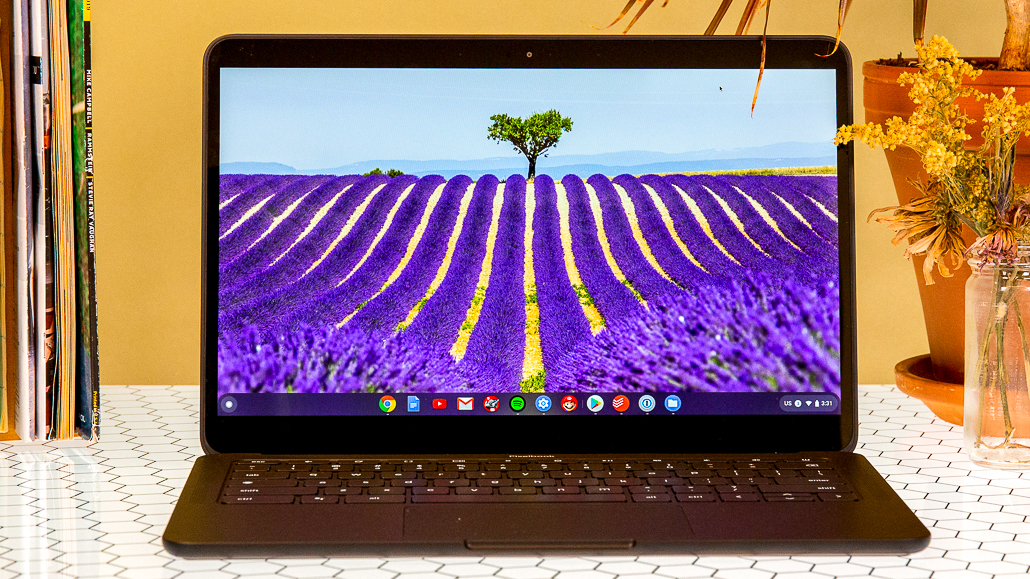Forget M1 MacBooks: Now Chromebooks are ditching Intel, too

Intel's rough month just got worse. First Apple unveiled a new MacBook Air with M1 and MacBook Pro with M1 powered by Apple Silicon that blows away Intel-based laptops on benchmarks and battery life.
And now comes word that AMD could be muscling in on Chromebooks in a big way. That's because it looks like AMD is prepping more Ryzen processors for Chrome OS-based machines.
- The best Chromebooks right now
- Chromebook Black Friday deals: Best early sales
- Just in: iPad Pro killer upgrade revealed — and it’s coming next year
If new findings in the Chromium Gerritt, a web-based code collaboration tool for software developers, is to be believed, then Google’s Chromebooks are looking to sport AMD’s Ryzen chips in 2021. That could be a huge blow to Intel.
New Chromebook baseboards, dubbed Guybrush, Mancomb, and Majolica, are likely to be powered by AMD’s new Zen 3 Cezanne chipset. Per a leak by Twitter user ExecutableFix, three Ryzen 5000 U-series chips based on Cezanne will be available next year.
While Intel still holds sway over a lot of the laptop chip arena, AMD has been snapping up some of the market share. On the low end the Ryzen 3000 series of mobile processors have been finding their way into more affordable WIndows 10 laptops.
While on the higher end, AMD has pushed its 7-nanometer Zen 2 architecture into its Ryzen 4000 series laptops chips. While these aren't prolific in laptops yet, they have shown off superb performance in the likes of the Asus ROG Zephyrus G14.
Currently, Intel is on the 10nm process node with its Tiger Lake chips, which offer solid performance. But they haven't quite blown us away in generation-to-generation performance in the results we've seen so far.
Get instant access to breaking news, the hottest reviews, great deals and helpful tips.
So Intel is already under an increased threat from AMD. And with Apple dropping Intel to create its own line of ARM-based chips for its Mac machines, Intel could be challenged from all sides.
Intel has long offered low-powered chips for Chromebooks. But if this leak is anything to go by then we could see Chromebook makers ditch Intel chips for AMD CPUs built around a new and improved third-generation Zen architecture
According to Statista, 20 million Chromebooks have been shipped in 2020 so far. That’s 2.4 million more than Macbooks Apple shipped in 2019 at 17,684,000. So it's clear that there's a big opportunity here for AMD.
Ryzen up
It's worth noting that this isn't the first time AMD Ryzen processors have found their way into Chromebooks, as the HP Pro c645 came with Ryzen processor options. But it was an enterprise-grade Chromebook, so AMD has plenty of scope to dig into the consumer CHromebook market. And next-gen Ryzen chips could be just the vehicle to drive that in-road.
While they've not been officially revealed - in fact AMD hasn't even released desktop processors based on Zen 3 - Ryzen 5000 laptop processors based on Zen 3 promise a significant boost in performance, with better efficiency and the ability to handle more instructions per clock.
If AMD can offer a high level of performance - according to the leak the Ryzen 7 5800U offers eight cores, 16 threads, and a boost clock speed of 4.4GHz - at a good price for laptop makers, then we could indeed see such chips in more laptops.
This performance arguably overkill for a Chromebook. But it could be the performance Google might be after is it plans to build out Chrome OS machines with capabilities beyond Google Docs and web browsing.
Per a report by Kent Duke at Android Police, while scrubbing the Gerritt, he found evidence that a touchscreen will be available on upcoming Chromebooks, suggesting a convertible tablet configuration.
However, even if future Chromebooks don't get Zen 3-based Ryzen processors, the leak detailed how the CPUs will offer a load of cores and significant clock speeds with reasonably constrained power draws. For example, the Ryzen 3 5400U is tipped to have four cores and eight threads, and hit a clock speed of 4GHz all with a thermal design power of 10 to 25 watts. That's some pretty promising performance for a laptop chip.
It's worth taking such leaks with a healthy dose of scepticism. But all this hints that 2021 could be a very interesting year for AMD processors, Chromebooks and laptops. And it serves as a warning that Intel needs to keep working on innovating, otherwise it could start to see its position as the king of the CPUs get eroded further.

Imad is currently Senior Google and Internet Culture reporter for CNET, but until recently was News Editor at Tom's Guide. Hailing from Texas, Imad started his journalism career in 2013 and has amassed bylines with the New York Times, the Washington Post, ESPN, Wired and Men's Health Magazine, among others. Outside of work, you can find him sitting blankly in front of a Word document trying desperately to write the first pages of a new book.
 Club Benefits
Club Benefits





